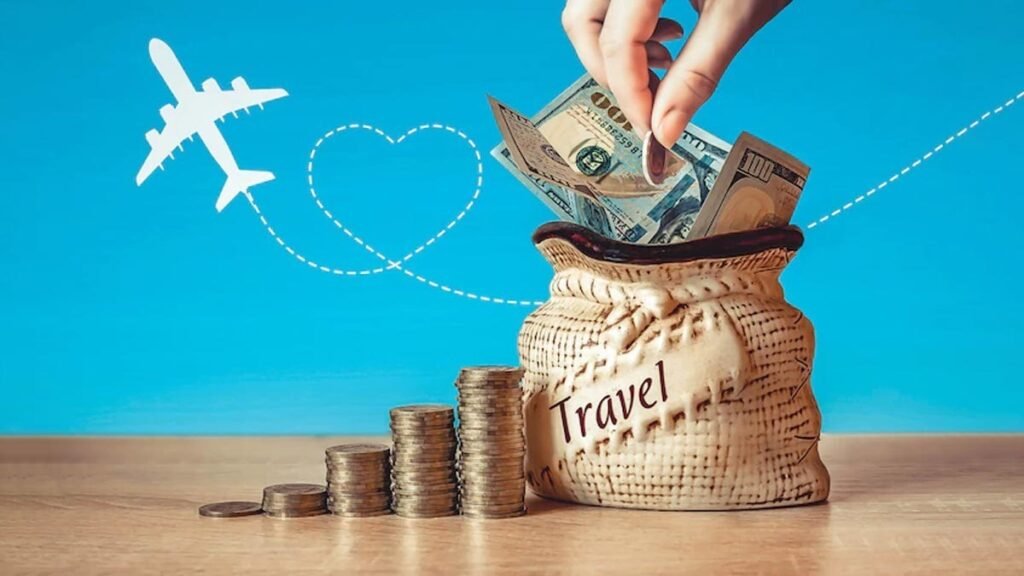
Traveling the world doesn’t have to come with a hefty price tag. While it may seem like an expensive luxury, with the right strategies, anyone can explore new destinations without draining their savings. Whether you’re planning a weekend getaway, a month-long backpacking adventure, or a family holiday, smart planning and mindful budgeting can help you travel affordably without sacrificing enjoyment. In this guide, you’ll learn practical, easy-to-follow tips that will help you plan your trip without breaking the bank.
1. Define Your Budget and Stick to It
Start With a Realistic Travel Budget
The first step in planning a cost-effective trip is understanding how much you can spend. Review your finances and determine a comfortable travel budget. Be realistic—consider how much you need for transportation, accommodation, food, attractions, insurance, shopping, and emergencies.
Use a Budget Planner
Tools like Excel sheets, travel budgeting apps (e.g., Trail Wallet or TravelSpend), or simple pen and paper can help track your estimated expenses versus actual spending. Having a clear financial outline helps you make informed decisions throughout your trip.
2. Choose Affordable Destinations
Go Where Your Money Stretches Further
Some destinations are naturally more budget-friendly than others. Southeast Asia, Eastern Europe, Central America, and parts of Africa often offer rich experiences at lower costs. Countries like Vietnam, Indonesia, Albania, or Mexico are perfect for travelers looking to stretch their dollars.
Consider Traveling Off the Beaten Path
Popular tourist hubs often come with inflated prices. Instead, explore lesser-known towns and regions. These places tend to be cheaper and more authentic, giving you a deeper cultural experience at a fraction of the price.
3. Travel in the Off-Season
Avoid Peak Seasons
Airfare and accommodation prices skyrocket during holidays, summer breaks, and major events. Traveling during the shoulder or off-season (e.g., spring or autumn) means cheaper prices, fewer crowds, and better availability.
Enjoy Discounts and Better Deals
In low seasons, many hotels, airlines, and tour operators offer discounts and promotions to attract travelers. Take advantage of these deals to save significantly.
4. Score Affordable Flights
Use Flight Comparison Tools
Websites and apps like Skyscanner, Google Flights, Momondo, or Hopper allow you to compare flights across multiple airlines and booking platforms. Set fare alerts to track price drops and book when fares are lowest.
Be Flexible With Dates and Airports
Flying mid-week or during unpopular hours (like red-eyes) is usually cheaper. Also, consider flying into alternative airports near your destination, as smaller airports often have lower landing fees and fares.
Book in Advance (But Not Too Early)
Generally, booking flights 6–8 weeks ahead offers the best balance between availability and cost. Last-minute bookings or excessively early purchases can end up being more expensive.
5. Save on Accommodation
Choose Budget-Friendly Stays
Instead of luxury hotels, consider staying in:
- Hostels (ideal for solo travelers or backpackers)
- Guesthouses or homestays (for cultural immersion)
- Vacation rentals like Airbnb or Vrbo
- Budget hotel chains or capsule hotels
Stay Longer, Pay Less
Many accommodations offer discounts for longer stays. Weekly or monthly rates can save you a lot, especially for slow travelers or digital nomads.
Use Reward Programs and Credit Card Points
Loyalty programs from hotel chains or credit card travel points can give you free nights, upgrades, or discounts. Sign up for rewards early and use your card wisely to build travel credits.
6. Plan Smart Transportation
Use Public Transportation
Avoid taxis and rental cars when possible. Buses, subways, and trains are cheaper and offer an authentic way to explore the city. Consider city transport passes or prepaid cards for extra savings.
Walk or Bike
Walking or renting a bicycle is not only cost-free or cheap but also a great way to explore at your own pace. Many cities offer affordable bike-share programs.
Book Intercity Travel in Advance
If traveling between cities or countries, book trains or buses in advance for the best prices. Companies like FlixBus in Europe or RedBus in Asia offer reliable, budget-friendly intercity travel.
7. Eat Well Without Overspending
Avoid Tourist Traps
Restaurants near popular attractions usually charge more. Walk a few blocks away or ask locals for recommendations to find cheaper, more authentic eateries.
Eat Like a Local
Street food, local markets, and small family-run diners offer delicious meals at low prices. Not only do you save money, but you also experience real local flavors.
Buy Groceries and Cook
If your accommodation has a kitchen, prepare your own meals occasionally. Shopping at local supermarkets and cooking can significantly reduce your food expenses.
8. Free and Low-Cost Activities
Explore Nature and Public Spaces
Many cities have beautiful parks, gardens, lakes, and walking trails that are completely free. National parks and beaches often have minimal entry fees and offer unforgettable experiences.
Take Advantage of Free Days
Museums, galleries, and attractions often have free entry days or discounted rates on certain days of the week. Plan your itinerary accordingly to take advantage of these offers.
Free Walking Tours
Many cities offer free walking tours where you pay only tips to the guide. These tours are informative, fun, and great for budget-conscious travelers.
9. Limit Souvenir Spending
Be Selective and Creative
Instead of buying expensive souvenirs, look for meaningful, inexpensive items like postcards, local crafts, or edible treats. You can also take photos, keep tickets, or collect small items like coins or shells as memorable keepsakes.
Shop at Local Markets
Avoid airport shops and tourist stalls. Local markets often have better deals, unique items, and the chance to bargain.
10. Get Travel Insurance
Protect Your Investment
Although it’s an upfront cost, travel insurance can save you thousands if something goes wrong. Coverage for trip cancellations, medical emergencies, or lost belongings is essential—even for budget travelers.
Compare Plans for Value
Use comparison websites like InsureMyTrip or World Nomads to find the best policy at the most affordable rate.
11. Use Technology to Your Advantage
Download Money-Saving Apps
Apps like Rome2Rio, XE Currency, Google Maps Offline, Couchsurfing, and Hostelworld help you save money, compare costs, and make informed travel decisions on the go.
Stay Connected Cheaply
Instead of relying on roaming, buy a local SIM card or use international eSIM plans to stay connected without excessive charges.
12. Travel Light
Avoid Baggage Fees
Pack only what you need and travel with carry-on luggage to avoid checked bag fees. Lightweight travel also makes it easier to move around and take public transport.
Use a Packing List
Create a packing list to ensure you bring everything essential. Avoid last-minute purchases of items you already own but forgot to pack.
13. Travel with Friends or in Groups
Split Costs
Group travel allows you to share accommodation, transportation, and meal costs, significantly reducing individual expenses.
Group Discounts
Many attractions, tours, and activities offer group discounts. Traveling with others opens up more cost-saving opportunities.
14. Earn While You Travel
Consider Work Exchanges
Platforms like Workaway, HelpX, or WWOOF connect travelers with hosts who offer free accommodation and meals in exchange for a few hours of work per day.
Freelance or Remote Work
If you have skills like writing, design, teaching, or marketing, consider freelancing or working remotely to fund your travel. Websites like Upwork or Fiverr offer remote gigs.
15. Reflect and Learn from Each Trip
Track Spending
Keep a daily log of your expenses to understand where your money goes. This helps you identify spending patterns and adjust for future trips.
Adjust Future Budgets
After your trip, review what worked and what didn’t. Did you overspend on food but save on transport? Use these insights to refine your next travel budget.
Conclusion: Adventure Doesn’t Have to Be Expensive
Traveling on a budget is not about cutting corners—it’s about making smarter choices. With careful planning, creativity, and resourcefulness, you can see the world without financial stress. Whether it’s a solo backpacking trip, a romantic getaway, or a family adventure, affordable travel is within reach.
By setting a realistic budget, choosing the right destination, traveling during off-peak seasons, and embracing local experiences, you’ll not only save money but also create more meaningful travel memories. Remember: the best journeys aren’t always the most expensive—they’re the most thoughtfully planned.
So pack your bags, prepare wisely, and get ready to explore the world without breaking the bank.




